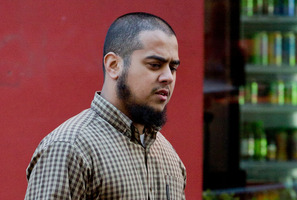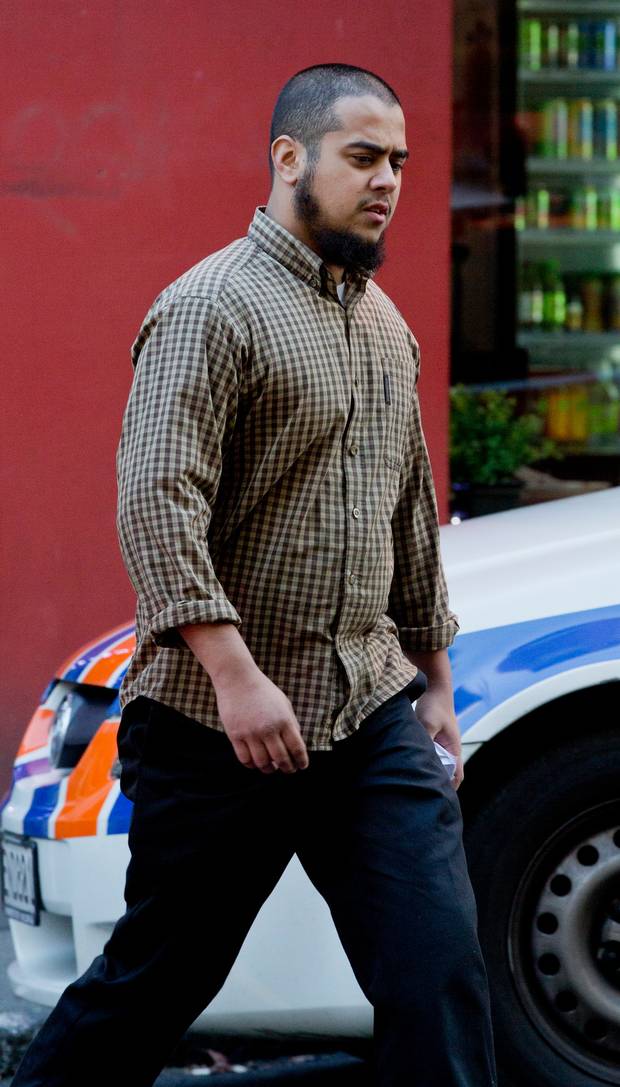
The first New Zealander jailed for possessing and distributing extremist propaganda will be released on parole as he is no longer deemed a risk to public safety.
In June 2016 Imran Patel was jailed for three years and nine months after admitting possessing, making and distributing extremist videos.
The court heard that he disseminated the videos through text to 52 people and when police raided his home he was found with material showing extreme violence and torture.
Earlier this year the Herald on Sunday revealed details of Patel’s decade of dealing with police, including instances where he wasn’t arrested or charged, before being jailed
It also came to light that Patel’s New Zealand passport was cancelled after he was stopped at Auckland International Airport trying to leave for Syria with a companion.
Patel was declined parole last year — not even showing up to the hearing.
He was declined again in February.

But after hearing on November 21 the Parole Board granted Patel, 29, an early release from prison.
His statutory release date – the official date his prison term would end – is September 12 2019.
A psychological report was provided to the board stating Patel’s overall risk factors.
He was considered moderate–low risk for reconviction and imprisonment within five years and, based on static and dynamic factors, a moderate risk of general violent offending.
“The report went on to comment that risk for terrorism involvement is complex and complicated by a number of difficulties with the lack of empirical evidence, due to low base rates of offending, and that radicalisation does not necessarily mean an individual will engage in terrorist behaviour and vice versa,” the parole report stated.
“That report then went into some depth about his pathway into the offending including growing up in a stable home environment where Muslim beliefs were encouraged but not strictly imposed.
“It then traversed how he became involved with gangs in the Auckland area and his developing interest in Middle East affairs and the predicament of Sunni Muslims in the Middle East.”
Patel had eight “extended individual psychological sessions” between October 27 and May 2018 and the report stated that no further psychological intervention was recommended whilst he was in prison unless there was a “clear escalation in risk”.
Patel’s lawyer told the board that he had “reached the point where he has engaged well and addressed his risk”.
The board heard that Patel was “now with the benefit of short life-skill programmes and advice and assistance from others” and had changed to a position where he is now “expressing pro-social life goals”.
His lawyer said his time in prison “has enabled him to reflect on his life and evaluate and improve on the attitudes that contributed to his offending”.
In particular, Patel had “taken on-board education and knowledge and moderated his thinking and beliefs”.

The board heard that if released, Patel proposed to undergo further rehabilitation including a “very comprehensive proposed religious rehabilitation programme”.
A community adviser also provided a report to the board about the issues surrounding Patel’s “assimilation into New Zealand society”.
The report also examined the “problems for a young Muslim man in a religiously contradictory environment with starkly contradicting values and principles at play throughout his life from different members in authority”.
“The report notes that the whole process involving the court and parole has forced Mr Patel back to revisit the basis of his existence, and to revisit fundamental aspects of his identity including his faith,” said Parole Board panel convenor Judge Neil MacLean.
“He notes the developing of the strength and ability to remain calm and approach with a positive way his own identity even under difficult circumstances.”
Another report stated Patel was “now a good prospect for parole given his progress”.
It stated that accompanied by comprehensive release conditions, including guidance on religious matters, a general full wrap-around support package could be put in place which should help mitigate “any risk of reversion to previous unacceptable behaviour”.
Judge MacLean said Patel would be released from prison this month.
He would be subject to standard parole conditions as well as special conditions that would remain in place until six months after his statutory release date.
Patel must live at an approved address and adhere to a 10pm to 6am daily curfew.
He is not to “possess or distribute any material that promotes the destruction of or hatred for any religious, ethnic or other group of people”.
He is not to possess or use “any electronic device capable of accessing the internet, other
than a device that has been approved in writing by a probation officer” and upon request must make any such device available to the officer for the purpose of monitoring.
Patel is also banned from entering the Avondale Islamic Centre and must submit to electronic monitoring.
The board also banned him from initiating “any media contact directly or indirectly by way of television, radio, print and social media including Twitter, Facebook, blogs, or contribute to any website by way of post or otherwise”.
Patel is ordered to decline by “no comment” any request from any media for an interview or for any information about yourself, your offending, imprisonment or rehabilitation.
He will appear before the board again in March and comply with all directions from his probation officer.
First Kiwi jailed for distributing extremist propaganda granted parole
